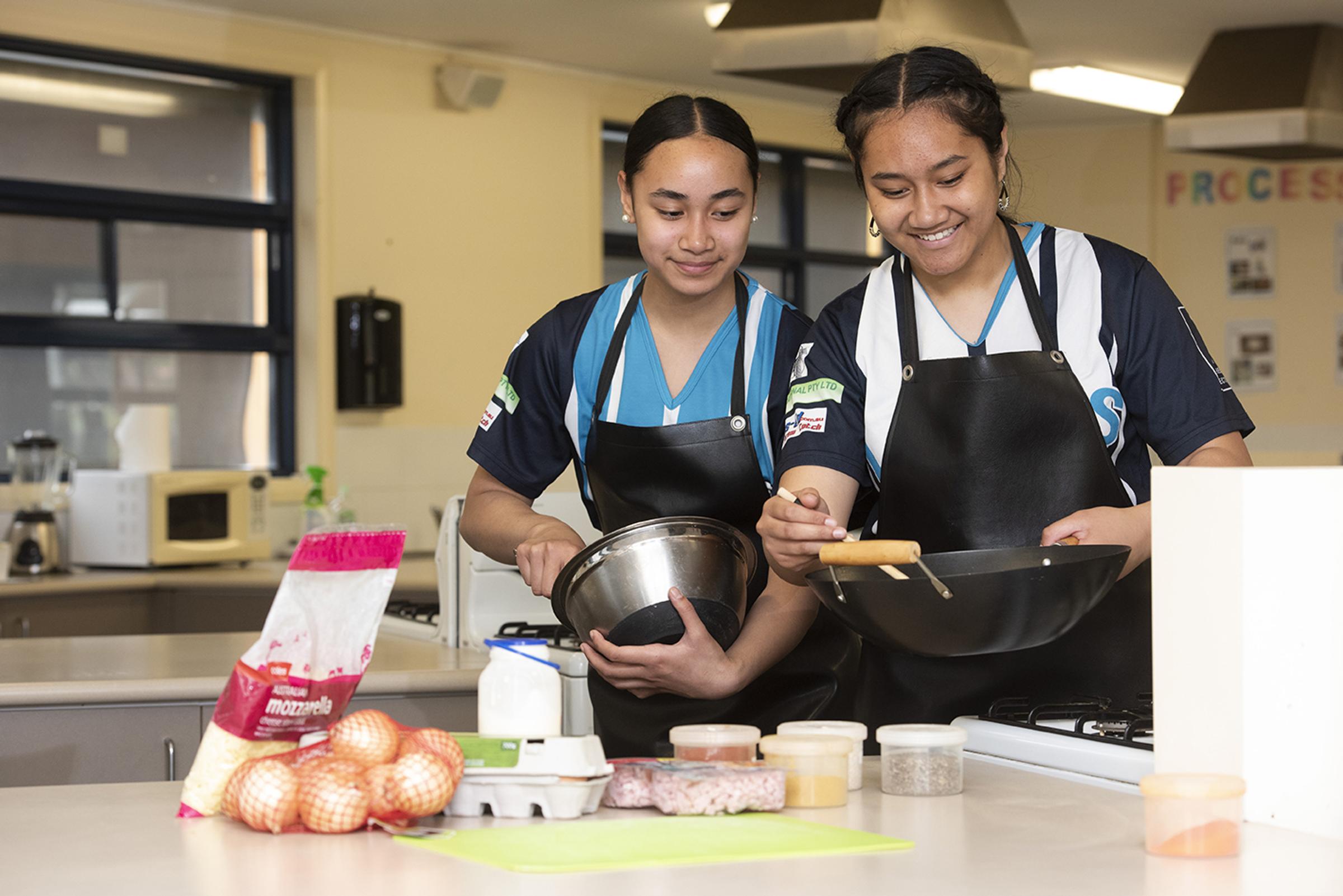Year 8 Electives - Technology

Food Discovery
Students are given the opportunity to study foods, cultures and cuisines from countries around the world. Students explore countries unique cooking techniques, skills and cuisines in theory sessions and put these new skills into practice during their practical sessions. Students have the opportunity to share family favourite recipes from their own cultural background all while continually tasting new and exciting ingredients and developing food knowledge and skills. Students will have the opportunity to investigate, design, produce and evaluate their very own multicultural dishes and present a feast of foods from various nationalities and eras.
Please note that this subject has a subject charge of $65 for materials (Correct at time of publishing)
Junior Master Chef
Students increase their knowledge of food and cooking in all areas of a working kitchen. They demonstrate hands on experience in using new equipment while dealing with a variety of fresh produce. In theory sessions, students investigate healthy eating, cooking techniques and specific ingredients. They also study food wastage and the impact that has on the environment. Students will apply their new knowledge of food wastage and design and plan meals using whole ingredients reducing their environmental impact.
Please note that this subject has a subject charge of $65 for materials (Correct at time of publishing)
Design Technology: Materials
In Year 8 Materials Technology, students apply the design process to find solutions to problems that are presented to them. Students will sketch their ideas, produce isometric drawings, carry out hazard identification and risk analysis and production planning as they transform their ideas to build products. Students will develop hand skills as they produce a range of products focusing on measuring, marking out from different materials like wood, metal and plastics using hand and power tools appropriate to the task. Testing and modification will play a role in product improvement as part of an evaluation process that will be included in a design folio for each product challenge.
Please note that this subject has a subject charge of $100 for materials (Correct at time of publishing)
Design Technology: Textiles
Textiles involves using material to design and produce functional products. Students will follow the design process to develop, make and evaluate unique and creative Textile products. They will investigate the characteristics of selected materials to help them plan and annotate their designs. With increasing autonomy, students follow the steps involved in design tasks. Students will also need to show consideration of environmental and sustainability factors in their research. This course focuses on hand-building so students can develop foundational skills they can build on in the future. Students who enrol in this subject should have interest in working with fabric and some experience in drawing and design.
Please note that this subject has a subject charge of $100 for materials (Correct at time of publishing)
Web and Go
Can you imagine a world without the World Wide Web? From creating the perfect web search to exploring the back end of websites and browsers, students will analyse global sites and spaces to see what makes them tick. They will investigate how the internet is structured, constructed and monetized. Students will apply their knowledge to work collaboratively in a team to create their own interactive website to meet the specific demands of a design brief, taking into account the challenges of creating a world wide digital product such as online file storage and time zone differences.
Code and Go
Students will work with their own robotics kit to design, program and build their own personal robot that they code to solve a variety of problems. Students will gain multiple skills using a variety of programmable hardware such as Lego robots and Hummingbird Duos. They will use various coding platforms combined with the practical work of wiring input and output components such as lights, motors, servos and sensors. Students will follow the Engineering Design Process in which they will create a design brief to build, test and refine.
